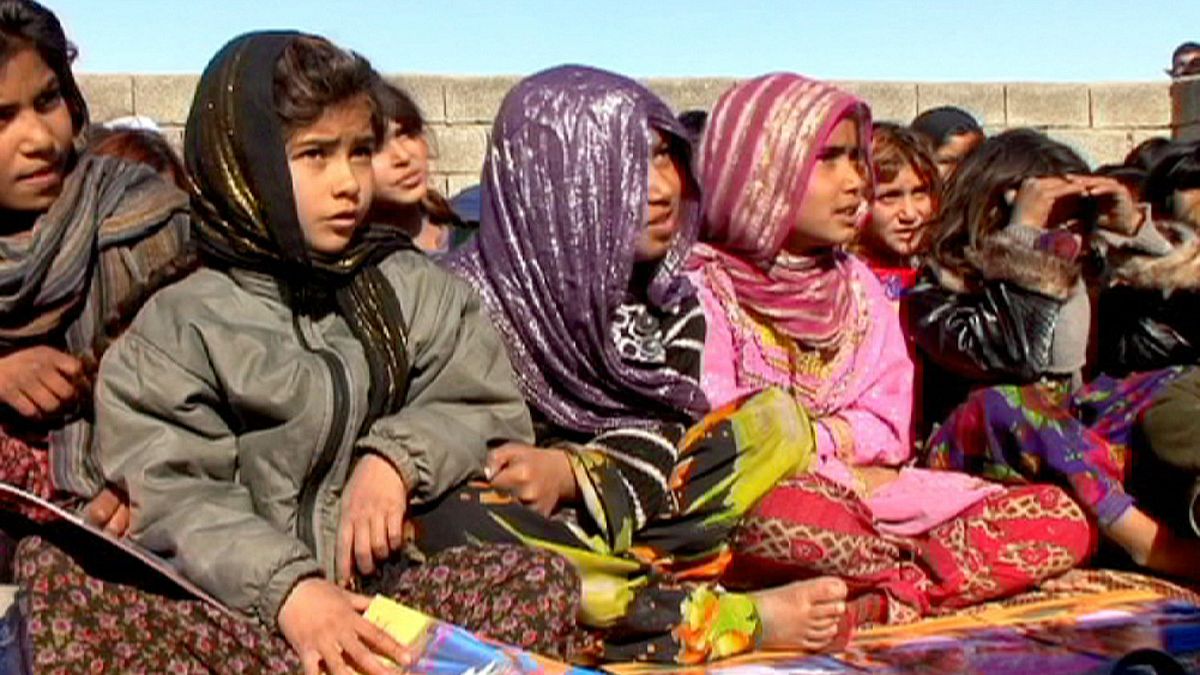The United Nations Convention on the Rights of the Child aims to protect children against discrimination. But many young people from marginalised and minority communities still face social and educational exclusion. We look at projects in Afghanistan, India and Spain aiming to improve their lives.
No ID, no education for Jats, Afghanistan
In the poor muddy slums of Afghanistan, many families from nomadic, minority backgrounds do not send their kids to school for fear of humiliation. The government has left a huge gap concerning their rights, and although some NGOs are trying to close it, conditions remain appalling for many people. Robeena sells bracelets at the market in Kabul. She belongs to a nomadic minority called Jats. Because of that, she’s never been able to go to school.
Robeena and her family live in a camp on the outskirts of the city. Along with another 2,000 people, they settled on this government owned land 8 years ago. There is no concrete, no electricity and in Robeena’s home, there are 8 mouths to feed.
In the Afghan Constitution, Jats are not officially recognized as a minority group. This means that most of them have no identity cards, meaning they can’t go to state schools. Jats are so marginalised that the word itself has even become an insult in Afghanistan.
On the other side of town is an even bigger camp, home mainly to people from the south of the country who fled from the fighting there. Among them lives a small community of Jats and for the first time, they have access to education.
Aschiana, an Afghan NGO, opened this school for Jats last year. It’s a first step towards recognition that this minority group is part of the Afghan nation.
For more information see:
en.wikipedia.org/wiki/Jat_people
www.aschiana.com/
Food and Education at KISS, India
In the Odisha region of India, around 9 million tribal people live in extreme poverty. The government is working to help them, but resources are limited. But thanks to KISS, the Kalinga Institute of Social Sciences, things are starting to improve.
Back in 1993, this school only had 125 students but today the Kalinga Institute of Social Sciences is the world’s largest boarding school with more than 15,000 students. Here they receive all the basic amenities of life absolutely free, and once they’ve finished their education, they are also promised a job.
Vocational education is an integral part of the curriculum here. In partnership with a formal education, it helps empower tribal students. The “Earn While You Learn” programme also helps them to prepare for life. Students also excel at sports.
Tribal culture, sport, vocational and formal education. KISS offers these students a perfect blend of modern and traditional lifestyles.
For more information see:
www.kiss.ac.in
www.orissadiary.com
University places for Roma, Spain
Barcelona, in Spain, is home to thousands of Roma families. Every day in this local library they struggle against the social exclusion of this ethnic group, starting with roots of everything: education.
Many Roma people lack confidence in the school system. This along with the tradition early marriages contribute to the high school dropout rate among Roma.
Nowadays more Roma students are going to university, but they still remain an exception. But the Pere Closa Foundation supports Roma students, encouraging them to go to university. They see it as an important way for Roma to achieve social equality. Parents trust the Foundation because it is run by Roma people.
Prejudice against Roma people in Spain is deeply rooted. Education is a start, Roma students succeeding at university is an even better one. But mainstream society also has a part to play in ending Roma exclusion in Spain.
For more information see:


